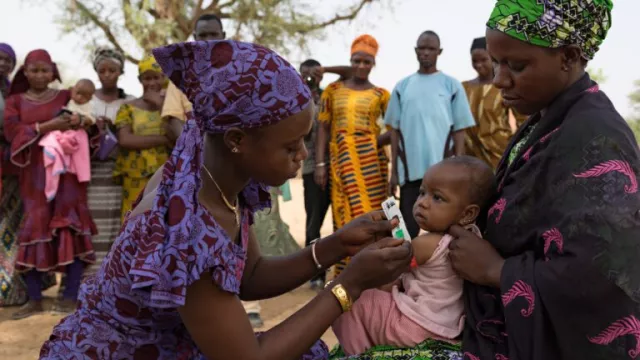Food Frontiers and Security

Overview
We will focus on three food systems of growing importance: fragile and conflict-affected food systems, urban and peri-urban food systems, and island food systems.
These systems are highly vulnerable to shocks and crises, marked by large youth populations, isolation with limited and resource-scarce food value chains, significant food and water insecurity, widespread malnutrition, and severe environmental threats and degradation. There is weak governance across these systems, and new solutions and investments must be catalyzed to support the world’s most vulnerable communities.
Our goal
Our work aims to help
Where we work
Bangladesh, Burkina Faso, Ethiopia, Ghana, Honduras, Kenya, Mali, Mozambique, Nigeria, Peru, Philippines, Solomon Islands, Somalia, Sudan, Timor-Leste
Challenges
Challenges we’ll address
- 1.5 billion individuals from fragile and conflict-affected areas are disproportionately impacted by poverty and food insecurity
- Rapidly growing urban areas struggle with high unemployment, dietary shifts, climate risks, and environmental pollution
- Island nations face rising sea levels, limited resources, malnutrition, and non-communicable diseases
Areas of work
Future Food Systems Lab
We will create spaces for innovation, rigorous research and learning, and foresight analysis to tackle the complex, intersecting challenges faced by these fragile food systems – collaborating with local partners, government agencies, and the private sector to integrate local knowledge with scientific research.

Fragile and Conflict-affected Food Systems
We aim to enhance preparedness, response, and recovery in fragile and conflict-affected food systems by addressing compound crises. It provides actionable evidence for conflict-sensitive, inclusive strategies, aligns humanitarian responses with long-term development goals, builds resilience, promotes gender equality, and supports effective program design. The goal is to guide partners in creating timely, sustainable, and impactful interventions before, during, and after crises.

Urban Food Systems
We will empower city governments and partners to strengthen urban food systems. Initiatives will improve organic waste recycling, ensure safe wastewater reuse, boost food safety, create youth employment, and expand access to fresh, safe, nutritious, and affordable food especially in low-income areas.

Island Food Systems
We will guide national programs in island contexts to foster sustainable food systems, climate resilience, and healthier diets. Through co-designed innovations, resilient production methods, and inclusive platforms, communities will develop more resilient food production systems, safer aquatic food distribution practices, and increased access to nutritious foods including indigenous foods. This effort addresses malnutrition, climate change, youth unemployment, and environmental challenges in coastal and marine contexts, transforming island food systems and providing models for global resilience and sustainability.

Gender Equality & Social Inclusion
We will enhance gender equality in frontier geographies by empowering women and youth, supporting livelihoods in crisis-prone settings, and addressing urban and island challenges. It builds our and our partner’s expertise in measuring empowerment, strengthens partner programs, and promotes inclusive policies for improved food security and resilience in vulnerable food systems.
Our approach
Interlinked support across CGIAR’s portfolio
We will work closely with the Better Diets and Nutrition, Climate Action, Multifunctional Landscapes, Policy Innovations, Scaling for Impact programs, and the Capacity Sharing, Digital Transformation, and Gender Equality and Social Inclusion accelerators.
Working to share our capacity with
- government partners, policy think tanks, NGOs, UN agencies
- research & advocacy networks
- local communities
Our expertise
- Strong partnerships with international universities and research institutes bring cutting-edge methodologies and discoveries
- Long-term relationships with local stakeholders underpinned by a physical presence in many countries
- Excellent laboratory facilities for advanced scientific and technical research
Events
News
-

When caseloads matter: Community health workers, home visits, and child survival in Mali
Community health workers (CHWs) increasingly play a central role in delivering essential primary health services in low-income settings.
-

Empowering Rural Communities in Egypt Through Post-Harvest Innovations
ICARDA conducted field visits to Qena and Minya, to follow up on the installation of small post-harvest processing units, paying particular attention...
-

Food Security and Women’s Unpaid Care in Zimbabwe
After Cyclone Idai, women in rural Zimbabwe carry the hidden cost of recovery. This blog reveals how unpaid care work expands under climate stress,...
-

Strengthening resilience for 7,000 households in Mozambique
In conflict-affected Cabo Delgado, new CGIAR–WFP research is guiding the design of conflict-sensitive nature-based solutions. By linking ecosystem...


